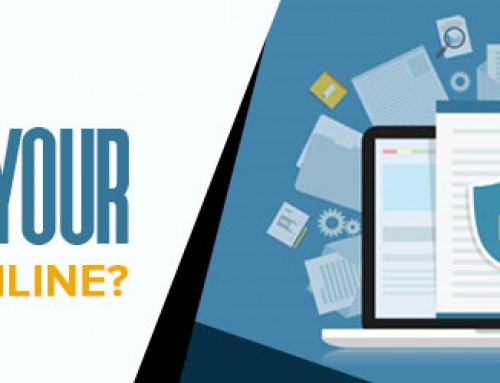PC Security
Computers help us maintain our financial, social and professional relationships. We use them for banking and bill payments, online shopping, connecting with our friends and family via email and social networking sites, searching for data posted on the Internet, and more. We rely heavily on our computers to provide these services, but we sometimes forget our need to secure them. Because our computers play a crucial role in our lives and we capture and visualize a large amount of personally identifiable information (PII), it is imperative to maintain computer security that ensures the secure processing and storage of our information.
Click here to download Free Internet Security
What is PC Security?
PC Security refers to technologies used to secure PCs, laptops, and other personal devices on a network. Computer security concerns private and public computer networks. Any unauthorized and illegitimate access is prevented from infecting virtual information, equipment and services. Computer security is essential to avoid any modification or damage that may be caused by malicious threats. PC security is also called computer security or cyber security.
Computer security is essentially about protecting computer systems and information from damage, theft and unauthorized use. This is the process of preventing and detecting the unauthorized use of your computer system. People often confuse computer security with other related terms such as information security and cyber security. One way to check the similarities and differences between these terms is to ask for what is guaranteed. For example,
- Information security protects information against unauthorized access, modification, and deletion
- Security means securing an autonomous machine by keeping it up-to-date and corrected.
- Security is defined as the protection of computer systems, which communicate via computer networks.
PC security vulnablities
A system or any other device can be vulnerable when it is subject to a malicious attack.
The three main ingredients of vulnerability
- A flaw in the system
- the hacker’s access to the flaw
- the hacker exploiting the flaw
System vulnerabilities often open the door for a hacker to attack the system. It is also call the attack surface. The system can be attacked in several ways. To know how to secure your computer against vulnerable attacks, you must first know the different attack modes and the threats that are responsible for them.
Backdoor
A backdoor in a computer system, cryptosystem, or algorithm is a secret method of circumventing normal authentication or security checks. They can exist for a number of reasons, including original design or misconfiguration. They may have been add by an authorized party to allow legitimate access, or by an attacker for malicious reasons; but whatever the motives for their existence, they create a vulnerability.
Denial-of-service attack
Denial of Service (DoS) attacks are designe to make a machine or network resource inaccessible to the intend users. And hackers can deny services to individual victims, for example by repeatedly submitting the wrong password to lock the victim’s account, and they can overload the machine or network capacity and block all users at once. So a network attack can be blocked from a single IP address by adding new firewall rules, and there are several possible types of Distributed Denial of Service (DDoS) attacks, including attacks from multiple issues – more difficult to protect. .
Direct-access attacks
An unauthorized user who physically accesses a computer is likely able to directly copy data from it. They can also compromise security by modifying the operating system, installing software worms, keyloggers, hidden listening devices, or using wireless mice. Even when the system is protected by standard security measures, these can be bypass by booting another operating system or tool from a CD-ROM or other bootable media. Disk Encryption and the Trusted Platform Module are designed to prevent these attacks.
Eavesdropping
Clandestine eavesdropping involves surreptitiously listening to a private conversation, usually between hosts in a network. For example, programs such as Carnivore and Narus In Sight have been use by the FBI and the NSA to listen to ISP systems. Even machines operating as a close system (that is, without contact with the outside world) can be listen to by monitoring the weak electromagnetic transmissions generat by the equipment; TEMPEST is a specification of the NSA that refers to these attacks.
Multi-vector, polymorphic attacks
Surfacing in 2019, a new class of multi-vector, polymorphic cyber threats surfaced that combined several types of attacks and changed form to avoid cyber security controls as they spread. These threats have been classified as fifth generation cyber attacks.
Phishing
Phishing involves acquiring sensitive information such as usernames, passwords, and credit card information directly from users. This is usually done by spoof email or instant message. It often prompts users to enter information on a fake website that looks almost identical to the legitimate site. The fake website often requests personal information, such as login information and passwords. This information can then be use to access the actual account of the individual on the actual website. Preferring the trust of the victim, phishing can be classified as a form of social engineering.
Basic Components of PC Security Software
Our Security developers are working harder to provide PC security to home users and businesses with next generation and advanced technologies to overcome malware issues. Antivirus software, firewall and Internet security, cloud storage are the basic components of computer security which are included in RAM Antivirus software.
- Antivirus: Antivirus software is used to scan and detect any type of malicious program including viruses, worms, rootkits, keyloggers, ransomware, etc. Repeated updates and fixes of antivirus security issues are very important, so users should be made available to update them before vulnerabilities can affect users’ systems.
- Firewall: A firewall does not allow unauthoriz access to the users’ system when they connect to the network. Anything that goes out of the Internet has to go through the firewall, is examine and if the messages deem unauthorized and do not comply with the security rules, they are immediately block.
- Internet Security Suite: An Internet security suite provides a multi-layered security approach that includes antivirus, firewall, anti-spyware, behavior analysis, virus scanning, scheduled scanning, and more. Enhanced versions of the Internet Security Suite implement heuristic-based protection and prevention.
- Cloud Storage: This helps secure user data and contributes to PC security. Data, when stored on your PC, takes up a lot of memory. To avoid this and to secure against malicious hackers, data can be store in the cloud, managing a cloud storage account, and thus contributing to data security.
How to choose the best PC Security software
Keeping your PC secure is essential to protect the personal, professional and financial information it contains. Fortunately, it is easy to secure your computer if you take the proper precautions. The use of secure passwords and verification processes will make it more difficult for another person or program to emulate you and access your information. Using security software like RAM Internet Security will make it harder for a hacker, virus, or malware to enter your PC. In addition to protection programs, the use of encryption and secure practices will contribute to the security of your data when you use the Internet.
People May Also Like…
Data protection
What is the data protection Data protection has grown to be of utmost importance to both individuals and organizations in the connected. world of today, where information travels quickly across many digital
What is a security software
Security software It is impossible to overstate the value of strong security software in today's digital world. Individuals and organizations must take proactive measures to safeguard their sensitive data and defend against
Website reputation analysis
Website reputation analysis Websites are incredibly important for establishing an online presence for businesses, organizations, and people in the modern world. Analysis and evaluation of a website's reputation are crucial because there are
What is a Virtual private network (VPN)
What is a virtual private network (VPN) Virtual private network (VPN) have become an essential tool for both individuals and businesses in a time when online privacy and security are of the







